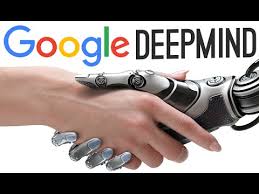 “No flying machine will ever fly from New York to Paris.” – Orville Wright, American inventor, and aviation pioneer.
“No flying machine will ever fly from New York to Paris.” – Orville Wright, American inventor, and aviation pioneer.
In some ways, we like to believe that there are limits to what the future holds. Automation, driverless or autonomous vehicles, and robotic soldiers/drones are the stuff of science fiction … or at least they used to be. As we venture into 2018, many scientific and economic publications are reporting that humans are very much being replaced by robots and artificial intelligence. And once more, there seem to be no limits to what these machines can do.
 The motivation to replace humans with efficient machines that are not vulnerable to ‘human distractions’ is clear; technology offers a huge financial gain. For business owners, CEOs, and shareholders, it’s appealing to be able to minimize the costs of labour and benefits while also avoiding the problems associated with workplace conflicts and absenteeism that cut into the bottom line.
The motivation to replace humans with efficient machines that are not vulnerable to ‘human distractions’ is clear; technology offers a huge financial gain. For business owners, CEOs, and shareholders, it’s appealing to be able to minimize the costs of labour and benefits while also avoiding the problems associated with workplace conflicts and absenteeism that cut into the bottom line.
Ok, so we know who the winners are in this scenario. What about those ‘displaced’ and ‘replaced’ people who need those jobs in order to make a living? How are they to compete against machines, artificial intelligence, and other forms of technology? How do they avoid being replaced and displaced in the first place?
Pennywise, pound foolish – Robert Burton
The saying ‘pennywise, pound foolish’ is over 400 years old and yet, it’s extremely relevant and timely. In the past, we’ve seen machines replace repetitive tasks such as factory work and larger scale manufacturing. More recently, we saw that technology and artificial intelligence could also manage more nuanced tasks, such as:
- routine bank transactions at ATM machines,
- copy editing software to fix typos,
- various ‘bots’ who address routine customer service issues when we contact technical support by phone or online chat,
- voice-to-text dictation software that now completes many administrative tasks, and
- other services that were once entrusted to human workers.
Now, the repercussions of these modern innovations are starting to become unsettling to professionals in a broad range of occupations (e.g., law, financial planning, and to a lesser extent, medicine). White-collar workers who thought that their education and professional status insulated them from being replaced by technology are now feeling professionally/financially threatened in ways that have already become familiar to others.
To be clear, I don’t believe that automation, artificial intelligence, or other modern technologies are the enemy. That said, one of my main concerns is how people, especially my clients, can stay ahead of the changes and avoid becoming irrelevant.
Some of my clients have started to share their concerns with me about this very topic:
“It’s bad enough that employers seem to just focus on technical skills when interviewing and approving job candidates. I mean, look at how hiring managers and interviewers review cover letters and resumes these days. It’s all about showcasing how many degrees you’ve racked up, how much of a human calculator you can be, how many software programs you’re familiar with, and how flexible you can be with an ever-changing schedule. I feel I’m already competing with robots. There are so many people being hired who have the technical skills but lack interpersonal or creative abilities. And now it’s looking like in the future I could actually be replaced by real robots! This confirms my worst fears that my value as a respectful and creative worker, resourceful thinker, and great communicator is no longer an asset in the workforce.” – Anonymous Client
 Expertise and experience still count for a lot. Plus, us humans have some spectacular traits that have not been replicated in machines or software as yet. And although there is talk of that changing soon, I want to focus on the advantages of having soft skills, which aren’t commonly found in AI, automation, or robots. Since these qualities can’t be provided digitally or automatically, they represent ways that humans can remain relevant and valuable in the workplace.
Expertise and experience still count for a lot. Plus, us humans have some spectacular traits that have not been replicated in machines or software as yet. And although there is talk of that changing soon, I want to focus on the advantages of having soft skills, which aren’t commonly found in AI, automation, or robots. Since these qualities can’t be provided digitally or automatically, they represent ways that humans can remain relevant and valuable in the workplace.
I also want to remind employers that properly evaluating soft skills at the time of hiring and promotion is an important step so that they are building a workforce that meets current and future needs.
Here’s a ‘starter’ list of soft skills that will make you irreplaceable by a machine, artificial intelligence, or technologies:
- Conscientiousness
- Empathy
- Interpersonal skills
- Creativity
- Behavioural Flexibility
- Initiative
The need for these soft skills is unlikely to go away, regardless of emerging technologies. If you are looking to start a new career or keep yourself relevant and valuable in your place of work these qualities are worth working on. Reliably evaluating the presence of these soft skills isn’t easy for employers but as a specialist in I/O psychology, this is an area where I can help improve hiring processes.
If you’re interested in other aspects of future-proofing your career and/or your business read this article. Among other things, it explains how professionals are no longer immune to being replaced by technology.
If you’re an employee who wants to stay relevant, or, if you’re an employer/hiring manager who wants to choose future staff wisely I invite you to connect with me privately. I offer a free 15 to 20-minute initial consultation by phone. Or, if you prefer, you can contact me by email, or via direct message on Twitter/X, Facebook, or LinkedIn.
More than career coaching, it’s career psychology®.
I/O Advisory Services – Building Resilient Careers and Organizations.
Easily share this article using any of the social media icons below.




